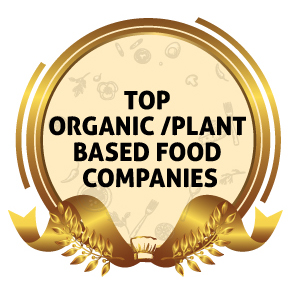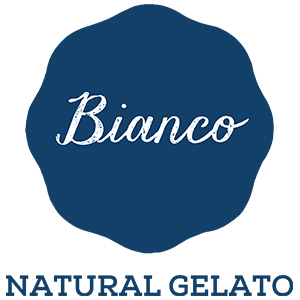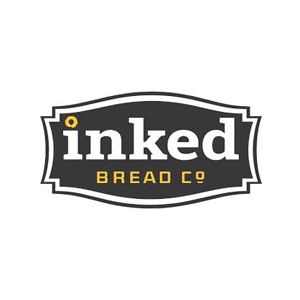\\\\ Top Organic /Plant Based Food companies \\\\
\\\\\\\\ Top Organic /Plant Based Food companies \\\\\\\\
-
Pumpkin Tree Snacks
Pumpkin Tree Organics is a leading producer and seller of healthy snacks and beverages intended for the active lives of kids. The company is known for its staunch commitment to wholesome ingredients and offers products made from 100 percent organic fruits and vegetables.
-
Bianco Gelato
Bianco Gelato is reimagining gelato from a guilty pleasure into a health-conscious choice. While traditional gelato is already lower in fat than ice cream, Bianco goes further. It strips away preservatives, artificial stabilizers and mystery ingredients. What emerges is a clean-label gelato that preserves the flavor integrity of the original and is adapted for modern lifestyles.
-
NURA
NURA is an innovative leader in vegan protein, offering sustainable, allergen-free, and high-quality ingredients like pea protein, YESTEIN® yeast protein, and COLLAWISE vegan collagen for diverse food and beverage applications, supporting health, performance, and environmental responsibility worldwide.
-
Inked Bread Co.
Inked Bread Co. is an artisanal bakery renowned on the West Coast for its healthy organic and low-carb (keto-friendly) bread options. The company offers a great-tasting bread line-up that includes organic whole grains, organic whole wheat, organic white, organic sourdough, and low-carb (keto-friendly) varieties.
-
Amara Organic Foods
Amara Organic Foods offers organic baby food and toddler snacks, including smoothie melts and purees. Their products are made with fresh, organic ingredients and use a dehydration process to preserve nutrients. Amara provides nutritious, convenient and healthy options for children, with no added sugars or preservatives.
-
Aurora Organic Dairy
Aurora Organic Dairy produces high-quality organic dairy products, focusing on sustainable practices. They manage the entire process, from organic feed production to milking and processing, ensuring no synthetic growth hormones or antibiotics are used. Their products, including milk, butter and cream, are made with integrity, offering traceable, fresh and affordable organic dairy to consumers nationwide.
-
Horizon Organic Dairy, LLC
Horizon Organic offers a range of organic dairy products, including milk, cheese, butter and cream, sourced from pasture-raised cows. They emphasize sustainability, animal welfare, and the use of no growth hormones, antibiotics, or GMOs. Horizon Organic is committed to providing high-quality, nutritious products while supporting organic farming practices and environmental responsibility.
-
Organic Valley
Organic Valley is a cooperative of organic farmers dedicated to producing high-quality, sustainable dairy products. Their offerings include milk, cheese, eggs and butter, all sourced from animals raised without antibiotics or synthetic hormones. The company emphasizes environmental stewardship, animal welfare and the promotion of organic farming practices, ensuring nutritious, ethically produced food for consumers.
-
SunOpta
SunOpta specializes in sourcing, processing and producing organic, non-GMO plant-based products. They offer a wide range of items, including beverages, snacks and ingredients, focusing on sustainability and innovation. SunOpta is committed to producing high-quality, responsibly sourced products while working to reduce their environmental footprint through efficient resource use.
More in News
How Coffee Consumption Affects Cardiovascular Disease Prevention
Monday, March 02, 2026
FREMONT, CA: Coffee is one of the most widely consumed beverages worldwide, appreciated for its rich flavor, invigorating aroma, and energizing effects. Beyond being a daily ritual or a quick pick-me-up, coffee may have potential health benefits, particularly for cardiovascular health. Recent research suggests that moderate coffee consumption could support heart function and reduce the risk of various cardiovascular diseases, making it more than just a comforting drink. How Drinking Coffee Helps in Cardiovascular Health Benefits Moderate coffee consumption can offer various cardiovascular health benefits, including a reduced risk of heart disease and stroke, improved blood vessel function, and positive effects on cholesterol levels. Coffee's rich antioxidants and metabolic advantages contribute to its protective effects on the heart. Coffee can be a flavorful ally in promoting cardiovascular health when consumed as part of a balanced lifestyle. However, drinking it in moderation and being mindful of individual health conditions is essential, as excessive intake may lead to adverse effects. Reduced Risk of Heart Disease: Several studies suggest a link between moderate coffee consumption and a lower risk of heart disease. Coffee's antioxidants, including chlorogenic acid and quinines, may help reduce inflammation and oxidative stress, vital contributors to heart disease. By combating oxidative damage in blood vessels, coffee can help maintain their health and function, supporting cardiovascular well-being. Lowered Risk of Stroke: Research has also indicated that coffee drinkers may experience a reduced risk of stroke. A meta-analysis involving multiple studies found that individuals who consumed three to four cups of coffee per day had a significantly lower risk of stroke compared to non-drinkers. This protective effect may be due to caffeine's ability to improve blood flow and enhance vascular health. Additionally, certain compounds in coffee may help regulate blood pressure, further contributing to reduced stroke risk. Improved Blood Vessel Function: Coffee consumption has enhanced endothelial function, crucial for maintaining healthy blood vessels. The endothelium is a thin layer of cells lining the blood vessels, and its health is vital for proper vascular function. Research shows that coffee can enhance the flexibility of blood vessels, allowing them to expand and contract efficiently. This flexibility is essential for regulating blood pressure and ensuring optimal blood flow. Antioxidant Properties: Coffee is a rich source of antioxidants that protect the body from oxidative stress. Oxidative stress occurs when an imbalance between free radicals and antioxidants in the body leads to cellular damage. The antioxidants found in coffee can help neutralize free radicals, reducing inflammation and protecting heart tissues. By mitigating oxidative damage, coffee may lower the risk of developing cardiovascular diseases and improve heart health. Potential Positive Effects on Cholesterol Levels: Some studies suggest that specific coffee compounds favorably impact cholesterol levels. While unfiltered coffee can contain substances that may raise LDL (harmful) cholesterol levels, moderate consumption of filtered coffee has been associated with healthier cholesterol profiles. Beneficial compounds like chlorogenic acid may help lower LDL cholesterol while maintaining or increasing HDL (good) cholesterol levels. This balance is essential for reducing the risk of atherosclerosis and other cardiovascular issues. Metabolic Benefits: Caffeine, a key component of coffee, is known to boost metabolism and increase fat oxidation. This metabolic enhancement can support weight management, which is critical for cardiovascular health. Excess weight places additional strain on the heart and increases the risk of hypertension and other heart-related conditions. By aiding in weight management, coffee consumption may improve cardiovascular outcomes. Mood and Stress Reduction: Caffeine enhances alertness and positively influences mood and cognitive function. Regular coffee consumption has been linked to a lower incidence of depression and improved mental well-being. Reducing stress levels is essential for heart health, as chronic stress can contribute to hypertension and other cardiovascular problems. Coffee may indirectly benefit heart health by promoting a positive mood and reducing stress. It is vital to enjoy coffee in moderation and consider individual health conditions to maximize its benefits while minimizing potential risks as part of a balanced lifestyle. Making informed choices about coffee consumption, in line with particular health conditions, contributes to heart health and overall well-being.
Key Growth Drivers Transforming Global Meat Distribution
Monday, March 02, 2026
FREMONT, CA: Technological advancements, changing consumer preferences, and a growing emphasis on sustainability are driving significant transformations in the meat distribution sector. These shifts are altering how meat is sold and consumed, while also promoting the industry's international growth. Consumers are becoming more selective about their meat purchases, seeking products that offer superior flavor, texture, and nutritional value, including heritage breeds, organic poultry, and grass-fed beef. In response, meat wholesalers are prioritizing sustainable agricultural practices and animal welfare by sourcing high-quality products and building relationships with specialty producers. The prominent trend in the meat distributors industry is the rising demand for high-quality and specialty meats. The trend drives growth in the premium meat segment and encourages innovation in meat production and distribution. Meat distributors are adopting sustainable practices, such as sourcing from farms that follow humane treatment standards, reducing carbon emissions, and minimizing waste. Innovations enhance supply chain transparency, efficiency, and traceability. Blockchain technology, for example, allows for secure and transparent tracking of meat products from farm to table, ensuring food safety and authenticity. IoT devices can monitor storage conditions and track shipments in real time, reducing spoilage and ensuring optimal product quality. The growth of e-commerce and direct-to-consumer models transforms how meat is distributed and purchased. Meat distributors are capitalizing on this trend by developing robust online sales channels, offering subscription services, and providing detailed product information and cooking tips. Globalization creates new opportunities for meat distributors to expand their markets and reach new consumers. Meat distributors explore these markets by establishing local partnerships, adapting products to regional tastes and preferences, and navigating regulatory environments. Advancements in cold chain logistics and international trade agreements facilitate the global movement of meat products, enabling distributors to tap into new growth opportunities. Health and wellness trends influence consumer choices and drive demand for leaner, healthier meat options. Consumers seek products free from antibiotics, hormones, and additives and those with higher nutritional value. Meat distributors are responding by offering a more comprehensive range of products that cater to health-conscious consumers, such as lean cuts, organic meats, and products fortified with omega-3 fatty acids. The focus on health and wellness meets consumer demand and encourages product development and marketing innovation. The importance of cold chain infrastructure in maintaining the quality and safety of meat products cannot be overstated. Investment in advanced refrigeration, storage, and transportation technologies is critical for ensuring that meat products remain fresh and safe from production to consumption. Meat distributors are upgrading their cold chain infrastructure to meet increasing demand, reduce spoilage, and comply with stringent food safety regulations. The investment is essential for maintaining consumer trust and driving growth in the industry. The meat distributors industry is experiencing dynamic changes driven by consumer preferences, technological advancements, sustainability, and globalization. Meat distributors can enhance operations, meet evolving market demands, and drive global growth. The industry's future will be shaped by distributors' ability to innovate, adapt, and deliver high-quality, sustainable, and convenient meat products to consumers worldwide.
How Organic Brands Are Reinventing Low-Sodium Taste
Monday, March 02, 2026
Fremont, CA: In today’s health-conscious era, consumers are increasingly scrutinizing the nutritional content of their food, with sodium intake becoming a significant concern. High sodium consumption is linked to various health issues, including hypertension and cardiovascular diseases, which has sparked a global movement toward lower sodium diets. Organic food companies, committed to using natural and wholesome ingredients, are leading this flavor revolution. It skillfully leverages technology and innovative culinary techniques to create low-sodium alternatives that do not compromise on taste. Leveraging Technology for Flavor Preservation Organic food companies are increasingly adopting advanced technologies to address the challenges of low-sodium food production while maintaining and enhancing natural flavors. One such innovation is High-Pressure Processing (HPP), a non-thermal pasteurization method that uses high hydrostatic pressure to inactivate harmful microorganisms. HPP extends shelf life without relying on high sodium levels as a preservative and can also positively influence food texture, an essential factor when sodium is reduced. For example, studies have shown that HPP helps retain the water-holding capacity of low-sodium processed meats. Another cutting-edge method is Pulsed Electric Fields (PEF), which employs brief bursts of electricity to permeabilize the membranes of microorganisms. This technique achieves effective pasteurization while preserving the food’s nutritional value and sensory characteristics, making it easier to reduce sodium content without compromising safety or taste. Advanced drying technologies, including freeze-drying and vacuum drying, are also being utilized to concentrate ingredients' natural flavors. These intensified flavors from vegetables, herbs, and spices allow manufacturers to enhance taste without additional salt. Furthermore, flavor encapsulation—a technique that involves coating flavor compounds with a protective layer—enables the controlled release of natural flavor enhancers during cooking or consumption. This method delivers a concentrated burst of flavor, effectively compensating for lower sodium levels in products such as processed snacks and ready-to-eat meals. Latest Developments and Information The growing demand for low-sodium organic foods continues to gain traction, driven by heightened consumer awareness and significant technological advancements. One key area of innovation involves natural flavor modulators, with companies developing compounds derived from plant extracts and fermentation processes to enhance the perception of saltiness. These modulators interact with taste receptors to mimic the flavor profile of salt, with lactic acid fermentation-based ingredients showing particular promise in amplifying savory notes and masking the off-flavors of salt substitutes. Another emerging trend is the integration of microbiomics in food development. Researchers are exploring how the microbiome and targeted fermentation techniques can naturally boost flavor in low-sodium products. By selecting specific microorganisms, manufacturers can cultivate ingredients with rich, complex flavors that reduce or eliminate the need for added sodium. Organic brands also embrace regional and ethnic culinary traditions, leveraging herbs, spices, and preparation methods that inherently rely less on salt. These culturally rooted approaches enhance flavor through aromatics, fermentation, and naturally occurring umami, aligning with the organic consumer’s preference for authenticity and clean ingredients. In line with clean-label expectations, sodium reduction strategies in the organic sector prioritize recognizable, natural ingredients over artificial enhancers or heavily processed substitutes. This approach resonates with health-conscious consumers seeking transparency and simplicity in their food choices. Organic food companies are demonstrating remarkable ingenuity in redefining flavor for health-conscious consumers. By strategically integrating advanced food processing technologies with innovative culinary techniques and a deep understanding of natural flavor profiles, they are successfully creating low-sodium alternatives that are both nutritious and delicious. The ongoing research and development in natural flavor modulators, microbiomics, and taste perception technologies promise an exciting future where reducing sodium in organic foods will not mean sacrificing the rich and satisfying tastes consumers crave. As health and wellness continue to be key drivers in the food industry, the commitment of organic brands to flavor innovation in the low-sodium space will undoubtedly shape the future of food.
Unleashing the Versatility of Oils and Fats in Culinary Creations
Monday, March 02, 2026
FREMONT, CA: Oils and fats are the most essential sources of plants and animals used in culinary practices and nutrition, providing necessary nutrients, flavor, and texture. They have various industrial applications, but they also have potential advantages and disadvantages. Pros: Nutritional Benefits and Culinary Versatility Source of Essential Fatty Acids: Oils and fats are rich sources of essential fatty acids, like omega-3 and omega-6, which the body cannot produce independently. These fats are critical for reducing inflammation, maintaining robust cell membranes, and enhancing mental performance. Energy Source: Fats are rich energy sources since they have more than twice as many calories per gram as proteins or carbohydrates. Lipids have a high energy density, making them essential for meeting daily caloric requirements and sustaining physical activity. Enhances Flavor and Texture: In cooking, oils and fats contribute to the sensory appeal of food by improving flavor, imparting richness, and creating desirable textures. Whether used for sautéing, frying, baking, or salad dressings, oils and fats are integral to creating diverse and satisfying culinary experiences. Nutrient Absorption: Certain vitamins, such as A, D, E, and K, are fat-soluble, requiring fats for absorption and transportation within the body. Incorporating healthy fats into meals helps ensure efficient absorption of these essential nutrients. Versatility in Cooking Methods: The optimal cooking methods for different types of oil depend on their smoke point. Extra virgin olive oil and other oils with lower smoke points are better used in salad dressings and low-heat cooking; avocado and peanut oils, however, have more excellent smoke points and are ideal for frying. Cons: Health Considerations and Environmental Impact High Caloric Density: Even while fats are an essential source of nutrients and energy, if consumed in excess and are not balanced with overall calorie intake and physical exercise, they can cause obesity and weight gain. Saturated and Trans Fats: Certain fat sources, especially those derived from animal products and partially hydrogenated oils, contain high concentrations of saturated and trans fats. Excessive consumption of these fats can elevate cholesterol levels and heighten the likelihood of cardiovascular ailments. Environmental Impact: The production of oils, especially palm oil and soybean oil, has raised concerns about deforestation, habitat destruction, and biodiversity loss in regions where these crops are cultivated. Sustainable sourcing practices and certifications are crucial for mitigating these environmental impacts. Processing Methods: Oil refining and processing can diminish their nutritional quality by reducing levels of beneficial compounds such as antioxidants and phytochemicals. Opting for minimally processed or cold-pressed oils preserves more of their natural nutrients. Allergies and Sensitivities: Some people may be allergic to or sensitive to particular oils, including soybean or peanut oil. It's critical that those with known allergies carefully read labels and avoid oils that could cause negative responses. Balancing Consumption for Health and Sustainability To harness the benefits of oils and fats while mitigating potential drawbacks, consider the following tips: Choose Healthy Fats: Choose unsaturated fats; these have been connected to lowering cholesterol and decreasing the risk of heart disease. For instance, these fats can be found in olive oil, avocado, canola, almonds, and seeds. Moderation is Key: Consume fats in moderation and maintain a balanced diet rich in various nutritious foods, including fruits, vegetables, lean meats, and whole grains. Read Labels: Pay attention to labels and choose oils and fats that are minimally processed and free from harmful additives or trans fats. Consider Sustainability: Select oils labeled sustainably sourced or certified by groups such as the Roundtable on Sustainable Palm Oil (RSPO) to support sustainable practices.
The Role of Nutraceuticals in Tomorrow's Health Trends
Friday, February 27, 2026
FREMONT, CA: The nutraceutical industry is continually evolving, with an increasing number of food-sourced products assuming expanded roles in nutrition. Consumers are increasingly interested in diets that promote better health while also helping to prevent diseases. It is essential to stay informed about these changes, as the dynamic nature of the market continually introduces innovations and new trends. The sector is also moving toward personalized nutrition due to genomics and data analytics advancements. These solutions specifically cater to one's genetic profiles, lifestyle factors, and health conditions, thus targeting and delivering measures for health relief more effectively than one-size-fits-all product solutions. This reflects a broader move in the healthcare industry towards personalized medicine. Consumer acceptance has pushed the market for plant-based nutraceuticals towards sustainable and ethical consumption. Antioxidant activity and overall health support have seen an increase in ingredients such as turmeric, spirulina, and green tea extract. The next grower will happen in ingredients that are antioxidant- and anti-inflammatory-driven, such as turmeric, spirulina, and green tea extract. In particular, the traction of plant-based diets is increasing demand for plant-based nutraceuticals that support a plant-based lifestyle, including plant-based protein powders and algae-extracted omega-3s. Functional foods, synthetically designed with nutrients or bioactives, are growing in popularity in the nutraceutical industry. Probiotics are supplemented into various food matrices such as yogurt, beverages, or snack foods to enhance gut health. Fortified foods, including vitamins, minerals, or phytochemicals, are being developed to correct deficiency or promote wellness. Digital Health Technologies: Enabling the Consumer Interaction Transformation Towards Nutraceuticals. Wearable Health Trackers and Mobile App Technologies: Allows continuous tracking of health metrics, personalized feedback, everyday monitoring of nutrient intake, and guidance on personal goals related to nutraceutical treats. This gives informed advice concerning nutraceutical treats, enhancing consumer engagement for better data-driven health decisions. This integration enhances consumer engagement and personal health goals. One key trend relating to the nutraceutical industry is sustainability. Priorities are high on sustainable nutraceutical products that are environmentally friendly and focus on the new wave of consumer-set awareness concerning nature. Companies have adopted such practices to be sustainable, responsible for procuring their raw ingredients, using recyclable packages, and generally reducing their carbon footprints. Companies are also increasingly demanding transparency in their sourcing and production methods, and consumers are looking for products from companies that will align with their values in the future. The nutraceutical regulatory environment is developing; governments and authorities focus more on safety, efficacy, and quality issues. This leads to more guidelines and regulations to ward off false claims in product advertisements and protect the promises made by the products. It soothes consumers and calls for more investment in compliance and quality control for product safety and quality.
Ensuring Freshness Through Advanced Cold Chain Logistics
Friday, February 27, 2026
Fremont, CA: Fueled by rising demand, cold chain food logistics is rapidly evolving, powered by advanced technologies and sophisticated freight management solutions. Cold chain logistics tends to receive less attention than other forms of food logistics. However, it presents more significant challenges and risks, underscoring the necessity for distributors and all participants in the supply chain to refine their logistics strategies. Cold chain logistics is a distinct sector within food logistics that aims to ensure the secure transportation of perishable food items. This process guarantees that the products are kept at the appropriate temperature throughout each phase of the supply chain. This particular logistics sector necessitates meticulous planning, cutting-edge technology, precise management, and some of the most sophisticated packaging and refrigeration solutions available. An in-depth examination reveals the unique challenges faced by this industry, as well as the innovative technologies that are facilitating opportunities for growth on a global scale. The primary issue in transporting perishable food items is ensuring the safety and quality of the products throughout the shipping process. However, various factors complicate this task within cold chain logistics. They are: Condensation and Temperature Changes Due to Faulty Equipment: A prevalent issue encountered is essential equipment failure, even if only briefly. Fluctuations in temperature can lead to risks such as freezer burn, condensation, and damage to products. Sudden equipment malfunctions represent a significant concern within the logistics management framework due to the potential damage that can occur in minutes. The most effective strategy to mitigate these risks is to ensure the availability of backup support to monitor and maintain precise temperature levels consistently. Collaborating with reputable cold chain logistics firms, particularly those equipped with cutting-edge technology for product oversight, can provide valuable assistance. Human Errors: Errors in refrigerated logistics frequently stem from human oversight. Only highly skilled professionals should actively manage logistics. Inefficiencies in operations or inadequate equipment management can significantly increase the risk of food product damage. Training on appropriate handling techniques and best practices in cold product management is vital for addressing these issues. Furthermore, technological innovations that automate various tasks and processes may substantially support operational management. High Costs: Cold chain logistics requires significant capital investment, which entails substantial expenses for specialized equipment, refrigerated transportation, temperature monitoring systems, and energy usage. The upkeep of cold storage facilities and refrigerated vehicles, particularly those adhering to rigorous standards, can incur considerable costs. These elevated operational expenses may pose challenges for smaller enterprises, hindering their ability to offer competitive pricing, especially in low-margin sectors such as the food industry.













